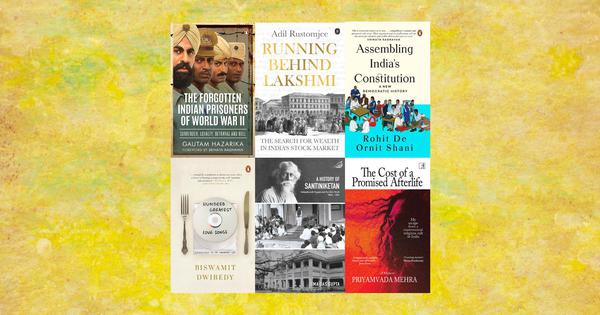Strong narratives highlight the evolution of education, history, and society in contemporary India.
A diverse array of new nonfiction titles in India offers fresh perspectives on the nation’s institutions and societal dynamics. One notable work is a history of Visva Bharati University, founded by Rabindranath Tagore, which illuminates his lifelong commitment to education. Tagore’s educational model, established in 1901, aimed to transcend national borders and promote global humanity. This volume complements previous scholarship by exploring Tagore’s pioneering efforts in rural reconstruction through education, emphasizing self-respect and inclusive nationalism as essential for India’s progress.
Another significant title, chronicling the history of the Indian National Army (INA), centers on Captain Mohan Singh and his alliance with Japan during World War II. The narrative unfolds against the backdrop of Singapore in 1942, detailing the INA’s battles and the challenges faced by its soldiers, including starvation and illness in Burma. This lesser-known chapter of history captures the spirit of resilience and loyalty among Indian soldiers, illustrating their struggles and sacrifices while also highlighting key figures like Subhas Chandra Bose.
In a different vein, Priyamvada Mehra’s account delves into the world of cults in India, detailing her experience growing up within the influence of a self-proclaimed godman, Rampal. What began as a quest for healing spiraled into a life of indoctrination and control, exposing the darker aspects of blind faith and the impact of systemic violence. Mehra’s story reflects the complex interplay of religion, patriarchy, and societal norms, showcasing her journey of survival amidst the oppressive structures of a cult.
Two historians, Ornit Shani and Rohit De, offer a reexamination of the Indian Constitution, focusing on its development from the perspectives of the people rather than solely through the lens of the Constituent Assembly. Their research reveals the various grassroots movements that shaped constitutionalism in India, underscoring the importance of public ownership in sustaining democracy amid challenges. This approach broadens the understanding of constitutional history in plural societies, providing crucial insights into the democratic fabric of India.
Additionally, the book titled Running behind Lakshmi sheds light on the evolution of India’s stock market, from its humble beginnings in the 19th century to its transformation into a public entity following the economic liberalization of 1991. Rustomjee combines archival research with practical insights, painting a comprehensive picture of how the stock market has influenced societal aspirations and economic realities throughout modern Indian history.
Lastly, Hundred Greatest Love Songs presents a genre-bending memoir that captures the journey of a young artist navigating his identity and aspirations. Through a series of vignettes, the protagonist’s transformation is illustrated as he moves from a small diner in Iowa to a prestigious arts college, meeting a diverse cast of characters who shape his understanding of life and art. This narrative serves as a testament to the power of creativity and resilience in the face of adversity.








